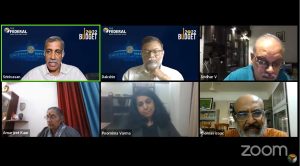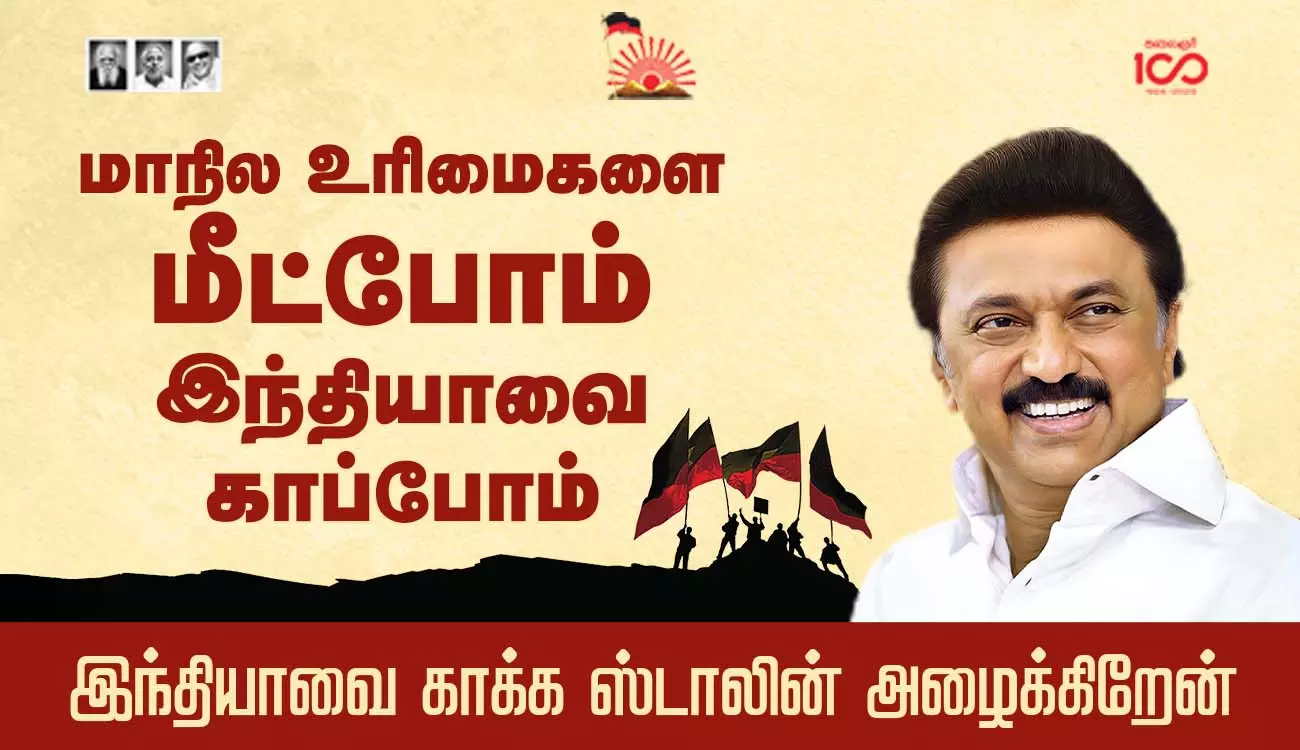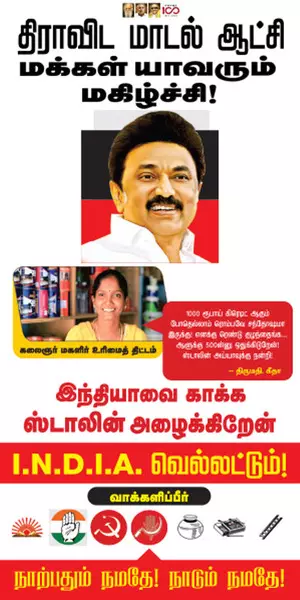
‘Centre, States have to hold a serious dialogue on capital expenditure’
At The Federal webinar, erudite analysts, subject specialists, politicians and journalists deconstruct Budget 2022

‘Slim’, ‘frustrating’, ‘right economic move, but at the wrong time’, ‘trickle-up’, and ‘like the kisan protest didn’t happen’ were some of the words used by experts at a webinar held by The Federal to describe Budget 2022.
Hosted by S Srinivasan, Editor-in-Chief, KS Dakshina Murthy, Associate Editor, and Puneet Nicholas Yadav, Assistant Editor, The Federal drew together and erudite panel of economic analysts, subject specialists, politicians and senior journalists to deconstruct the Union Budget.
The nation faces three major problems — economic stagnation (the GDP growth is at pre-COVID levels at best), inflation, and the ‘frightening’ widening of inequality — said Thomas Issac, CPM leader and former Kerala Finance Minister. The Budget addresses none of these issues, he added. Inflation has been ignored, and the allocation to the agri and allied sectors, food and fertiliser subsidy, and MGNREGA has been either trimmed or retained at existing levels, he observed.

“The health sector doesn’t get a pie more…and you talk of inclusive development,” he quipped. “The increased capital expenditure is being mobilised by squeezing the expenditure on the poor. That’s the real nature of this Budget.” When Srinivasan pointed out that capital expenditure after all leads to real asset creation, Isaac said the problem is with the way it is funded. “Don’t use people to finance capital expenditure,” he said.
Isaac further said there’s little adherence to the federal structure. Earlier, States could discuss issues with the Union government and with one another via the Planning Commission. States could make decisions on around 20% of the total Budget. With the dissolution of the Planning Commission, that avenue is closed, he rued, saying there is too much concentration of power with the Finance Ministry on Central schemes. “The Centre now says capital expenditure is very important,” he said. “But there is the need for a serious dialogue with the States on this.”
Also read: If virus deigns to retreat, Budget 2022-23 would foster growth recovery
Directional shift
Praveen Chakravarthy, Chairman, Data Analytics Department, Congress, said that directionally, the Budget shows a fairly marked shift from people and welfare to corporate and capital. Money has been taken from subsidies from food, fertiliser and MGNREGA and put into capital expenditure, he said. The FM’s bet is made on the conviction of trickle-down economics — that money will go from capital expenditure to infrastructure development to increase in economic activity to greater demand and output to job creation. While that is a conventional economic premise, the timing of the big bold shift is wrong, he said.
“Around 5 crore people are asking for MGNREGA work, marking an all-time high. At this juncture, will this directional shift pay off?” he wondered. What if the capital expenditure is not spent, he asked? That would be low spending, no trickle-down, and no welfare, he observed.
Senior journalist TK Arun said a larger capital expenditure is not enough — what’s important is how far it addresses immediate problems. It is good, however, that the Centre has dropped its $5 trillion economy discourse, he said, adding that the focus should rather be on achievables.
There are also some stark omissions, said Arun. “How will they finance the logistics scheme? Where’s the debt market,” he wondered. The Union government has made an announcement of ₹2.37 lakh-crore of MSP, which would mostly be for paddy and wheat. Earlier, it asked farmers to diversify their crops. This doesn’t present an integrated holistic view on the economy, he remarked.
Political repercussions
Yadav spoke about the apparent dissatisfaction of BJP leaders in Uttar Pradesh and the four other States where Assembly elections are due in February-March. For leaders who had hoped for populist announcements on E-Shram, MGNREGA, etc, there was disappointment, he said. A BJP MP from western UP had said it’s almost like the Budget is punishing the farmers for not being cooperative, he recounted. “And there are no brownie points for not increasing the fertiliser subsidy,” he said.
Calling it a ‘slim’ Budget lacking in substance, Dakshina Murthy said the lack of increased health allocation amid the pandemic is disappointing. The government should have come out with a total package, rather than the piecemeal response seen so far, he said. Further, the Budget had nothing for States, which have also undergone a lot of stress due to COVID, he observed.
Prof P Kanagasabapathi, author and member, Indian Council for Social Science Research, said that while MSMEs have been facing distress over the past two years, things are improving. The MSME cluster in Coimbatore has picked up very fast over the past 7-8 months, he emphasised.
The support from the government in the form of an emergency credit line was largely responsible for the improvement, he further said. “By and large, MSMEs are happy,” he added. The Atmanirbhar Bharat scheme, under which 68% of defence acquisition will be done from local firms, is another fillip for MSMEs, he said.
Agriculture focus
Ramakumar, policy analyst, Member of Kerala Planning Board and faculty member of TISS, said the Budget gives the impression that the kisan struggle never happened. “There’s very little for farming. MSP procurement is at routine levels,” he said. He further criticised the push for natural farming, saying it has zero scientific value. The move is aimed at bringing down fertiliser use, and therefore fertiliser subsidy, he said, adding that with the non-use of fertilisers, the yield could be vastly impacted.
While the GST mop-up as an absolute number seems impressive, as a percentage of GDP it is not remarkable, said Ramkumar. Criticising the allocations, he said the Budget talks of fast trains when there are no tracks to support the initiative.
Also read: A feel-good Budget that skirts around some critical areas
KE Raghunathan, MSME Convenor, Consortium of Indian Associations, said that for the micro entrepreneur and the self-employed, the Budget is ‘frustrating’. “They (Union government) did trial and error during the lockdown. Out of the 24 months (of pandemic till date), MSMEs worked for just six months,” he said.
MSMEs had sought several budgetary measures, but “they have no ears”, said Raghunathan. A big problem, he pointed out, is getting a bank loan. “A person buying a BMW car is treated the same way as a home loan customer,” he said. “All that we ask for is — save the employer and the employee.”
New names, new slogans
Amarjeet Kaur, General Secretary, All India Trade Union Congress, called the Budget ‘another bonanza for corporates’, saying all it has are new names and new slogans such as Gati Shakti. There’s no trickle-down, there’s only ‘trickle-up’, she said in a reference to capex rise amid a cut in subsidies. Kaur further wondered why the Budget, which is supposed to be a one-year mission statement, is looking at 25 years.
“The Finance Minister makes big talk on digitisation, etc, but is not looking down at the grassroot level,” said Kaur, pointing out that the pandemic has left the poor in dire need of a pucca roof, education, health facilities, and basic civic amenities. Even highly skilled and semi-skilled boys and girls reached out for MGNREGA, she added.
Senior journalist V Sridhar pointed out the ‘dualist’ nature of the Budget, saying it “left a lot of people outside the boat, and they are sinking”. To a query on rising exports, he said it was just pent-up demand after the lockdown, and following the easing of a blockade on the Suez Canal. “What should have been shipped over six months was shipped in three,” he said. MSME belts like Sivakasi and Coimbatore are struggling for survival, he remarked.
Sridhar made a relevant point on the allocation to education. Pointing out that lakhs of Indian students have lost two academic years to the pandemic, and that they need systemic support to bridge the gap, he said no funding has been earmarked for this. “There is a huge problem, and the government doesn’t even realise there’s one,” he remarked.
Cryptos and savings
Investment adviser Deepesh Raghaw said that there is nothing for the investor in the Budget unless he/she has invested in cryptocurrencies. The two-year time frame given for revised filing would, however, “reduce the friction in tax filing”, he observed. Further, the NPS disparity between State and Central government employees has been closed. Start-ups would appreciate the capping of surcharge for LTCG at 15%, he further said.
On the 30% tax applied on virtual assets, he said it is a problem for frequent crypto and NFT (non-fungible tokens) traders. The rollout of a digital currency by the RBI signals the government doesn’t want to be left out of the global trend, he said.
Also read: India guzzles gold: WGC report says consumption surged 79% in 2021
Poornima Varma of IIM-Ahmedabad said that while public investment vs subsidies is a debatable issue, cutting key subsidies for a small increase in capital expenditure is not justified. Cutting fertiliser subsidy, particularly when the prices are spiking, can have a huge impact on the incomes of small and marginal farmers, she observed.
Railway woes
The current state of Indian Railways is bad, and the focus should be on strengthening its existing network to meet future demand, rather than on privatisation, said Elangovan, Vice-President, Dakshin Railway Employees Union. The Railways needs new infrastructure and measures to improve the safety of wagons and tracks, and no course correction has been offered by the Budget.
The privatisation agenda is going nowhere because private players are not interested, said Elangovan. From the 150 trains that were originally scheduled to be offered to private players, the number whittled down to 60, and yet there were hardly any bidders, he pointed out. Of 12 clusters, there were bids for just three — of these, two bids were from IRCTC.
Sriddhar pointed out that in spite of the Railways Ministry offering various incentives — private players are allowed to set fares, offered prime time slots and so on — no company is keen because the revenue sharing is not attractive enough. He also wondered why the government was investing in an asset ahead of monetising it, citing the rail allocation.





